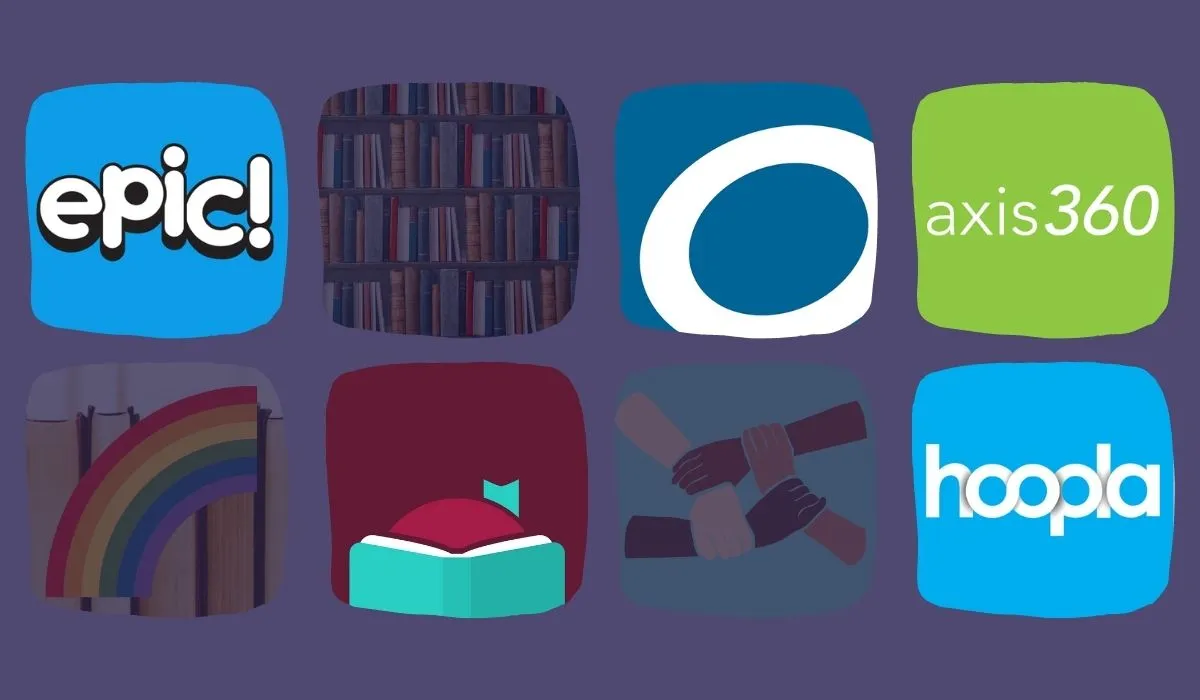Last week, Ashley of Bookish Realm gave a disturbing but expected update on how the fight over the freedom to read is going on the library front. She shared her frustrations after reading a lengthy NBC article detailing how conservative parent groups in Tennesse, Florida, and Texas are successfully pushing for schools and public libraries to disconnect from their e-reader collections. This action includes going after apps like Overdrive (a.k.a. Libby), Epic, and more.
In Tennessee, a parent complained to her district after finding an LGBTQ+ book (no name or title mentioned) on her kindergartener’s laptop, resulting in the district revoking access to the Epic digital library for all kids. This loss of access affected around 40,000 Nashville students. While not the parent who reported the app, Robin Steenman, a local Moms for Liberty leader in a neighboring county, told NBC that the book shouldn’t be available whether kids intentionally search for LGBQ+ books or not. She said kids are smart and can get around anything but a full ban, but Moms for Liberty routinely talks about how easily an agenda can trick their kids. Which is it, Robin?
Similar and worse situations happened in Florida, where Brevard County removed the Epic app from the district pending a proper “vetting,” and Texas took an already bad situation and asked, “How do we make this worse?” A rural Llano county library removed Overdrive access (17,000+ digital items) from all patrons, prompting a federal lawsuit claiming a violation of their 1st and 14th amendment rights. The defense involving the right to due process comes from the library dissolving the library board and holding private meetings as residents spoke up against the app removal.
Who this hurts

The two main apps under fire, Overdrive/Libby and Epic, have very different approaches to handling their collections. Epic allows many methods to allow individual accounts to block certain subjects. On the other hand, Libby gives most of the curation to the librarians. Hoopla (which allows for CD, TV, and movie checkouts, as well), Axis 360, and others each have little differences to them on the front and back end.
For millions of kids and educators, access to these digital collections made libraries accessible throughout the ongoing pandemic, especially during school shutdowns. However, as censorship reaches into the public library as in Texas (among others), this barrier to information affects all types of marginalized people, on top of low-income folks. For example, the group of Llano county citizens fighting back cites disabled and elderly patrons’ reliance on the app.
What’s extra frustrating and revealing of the true motivation behind these attacks is that unless a library actively highlights collections (sort of like a digital display shelf), you have to look for the books to be mad about. All apps have a search feature where you can browse by topic, format, age range, and more. Also, one can type in an author’s name or book title. It’s almost identical to moving about and selecting a book from the library’s physical collections. If you would watch your kid while at the library, but not as they browse the library app (or the internet in general), that’s on you. Time to read? Download the book and read it in airplane mode! Be a parent to your own child, not everyone else’s.
This won’t stop unless people resist
Accessing digital books, including easy-to-play (via phone, etc.) audiobooks, has allowed many people to come back to reading. I’m super biased because I fell back in love with reading a few years ago upon finding Libby, but this freedom to read away from censorship shouldn’t only extend to one app or one demographic with the money to move around these barriers. This ease in accessibility via the web is also the very thing that makes these apps susceptible to being turned off within days or hours of a formal complaint, like in the Tennessee case.
Ashley and others noted that this move to reading apps came at the heels of initiatives like the NYPL and the Brooklyn library making some books available for a limited time, regardless of location. However, I think that this is just a coincidence. Far-right groups invoking purity culture and bigotry always have changes to greater society in their sights, just as tolerance groups and intellectual freedom groups always have changes to greater society in their sights.
From anti-trans legislation to classroom book censorship (connected per usual), everyone who has been directly involved in or studied fascism (especially when fueled by religious zealotry) has warned us that this would get worse. Those seeking to deny our stories go for the easy targets first (a.k.a. children). Once a new normal is established (via Overton window), it’s super easy to move to adults and the general public. Now, with books, we are seeing digital access to libraries under attack and private businesses like removing books from Barnes & Noble’s shelves.
(via Bookish Realm, image: Alyssa Shotwell, Epic, Overdrive/Libby, Axis 360, and Hoopla.)
—The Mary Sue has a strict comment policy that forbids, but is not limited to, personal insults toward anyone, hate speech, and trolling.—










Published: May 23, 2022 04:45 pm